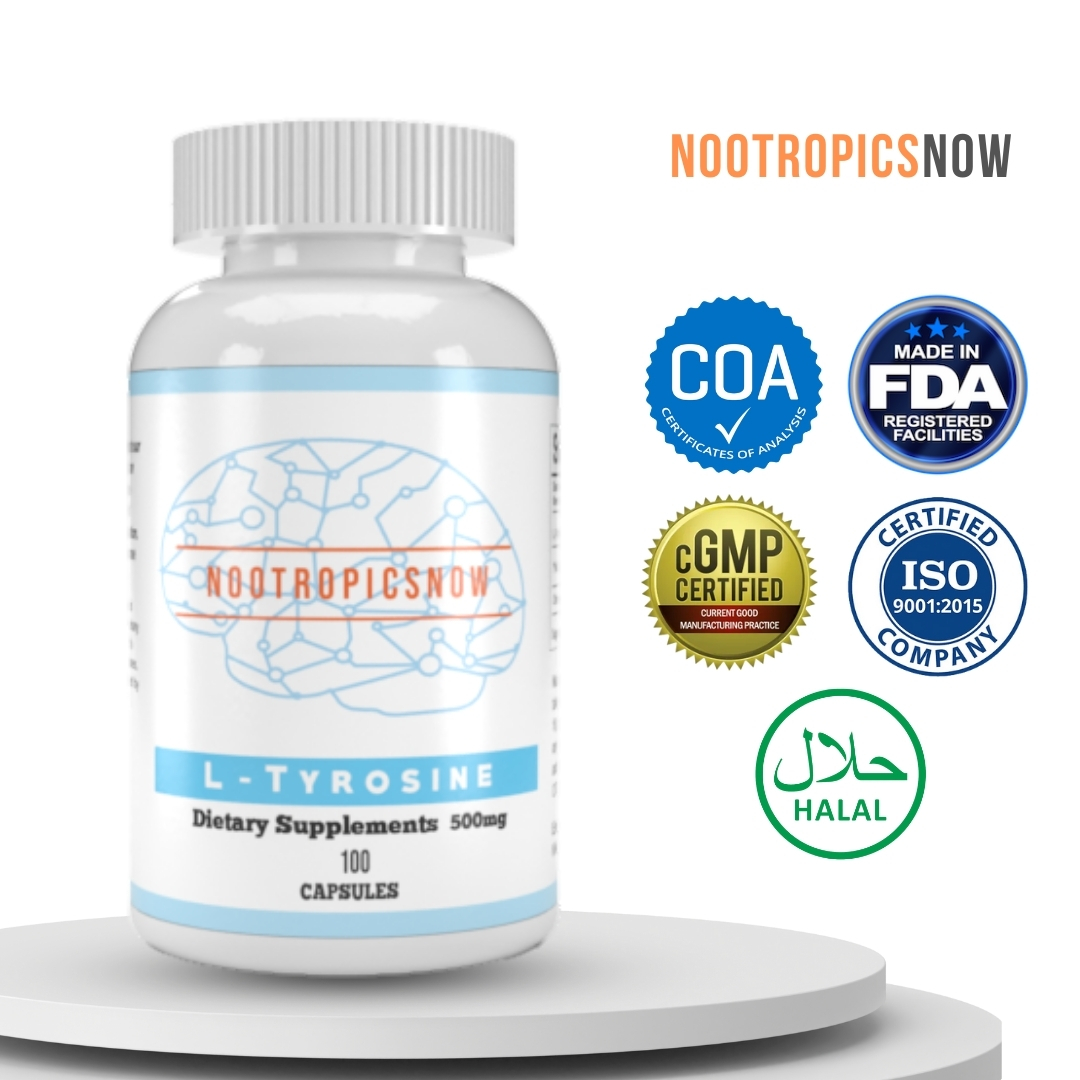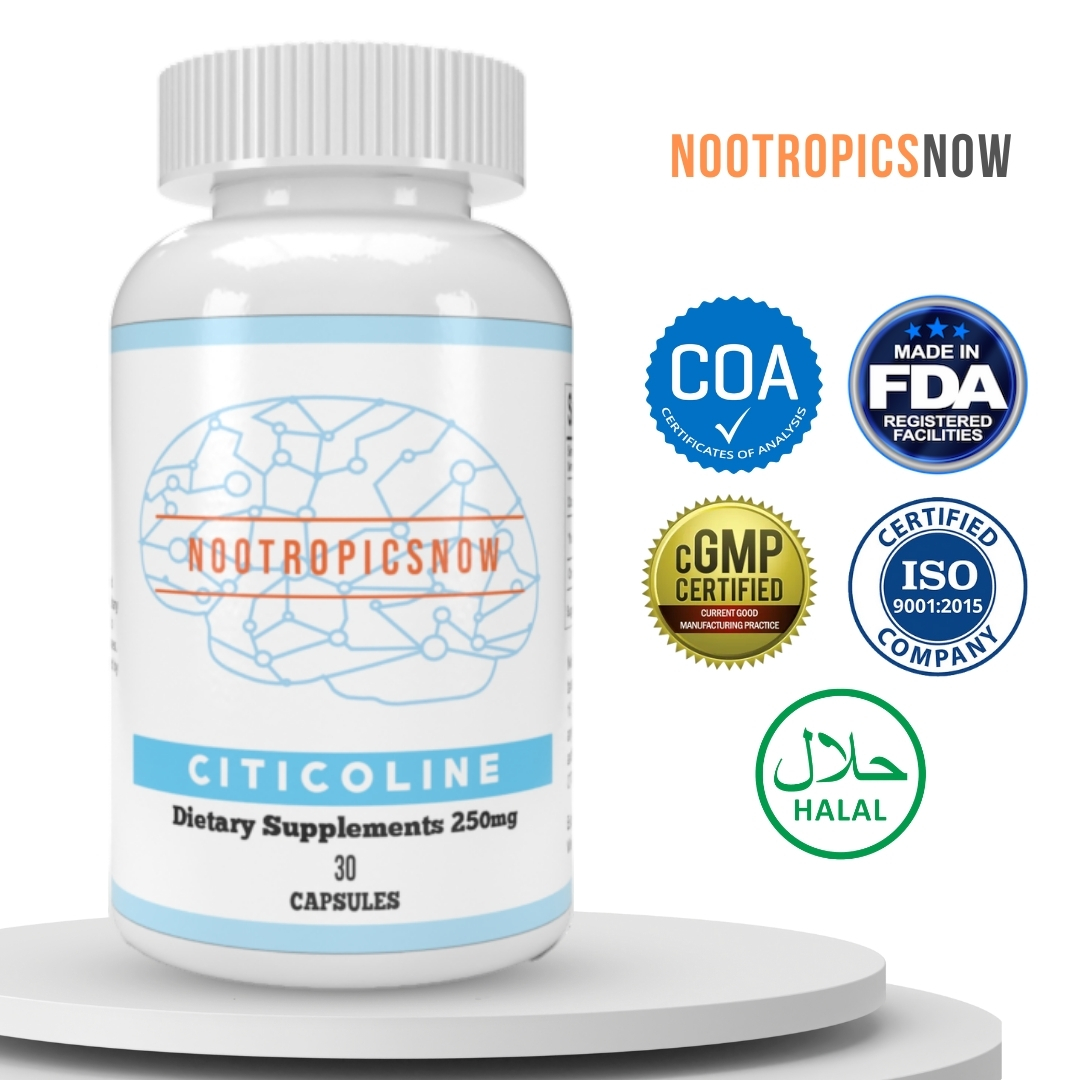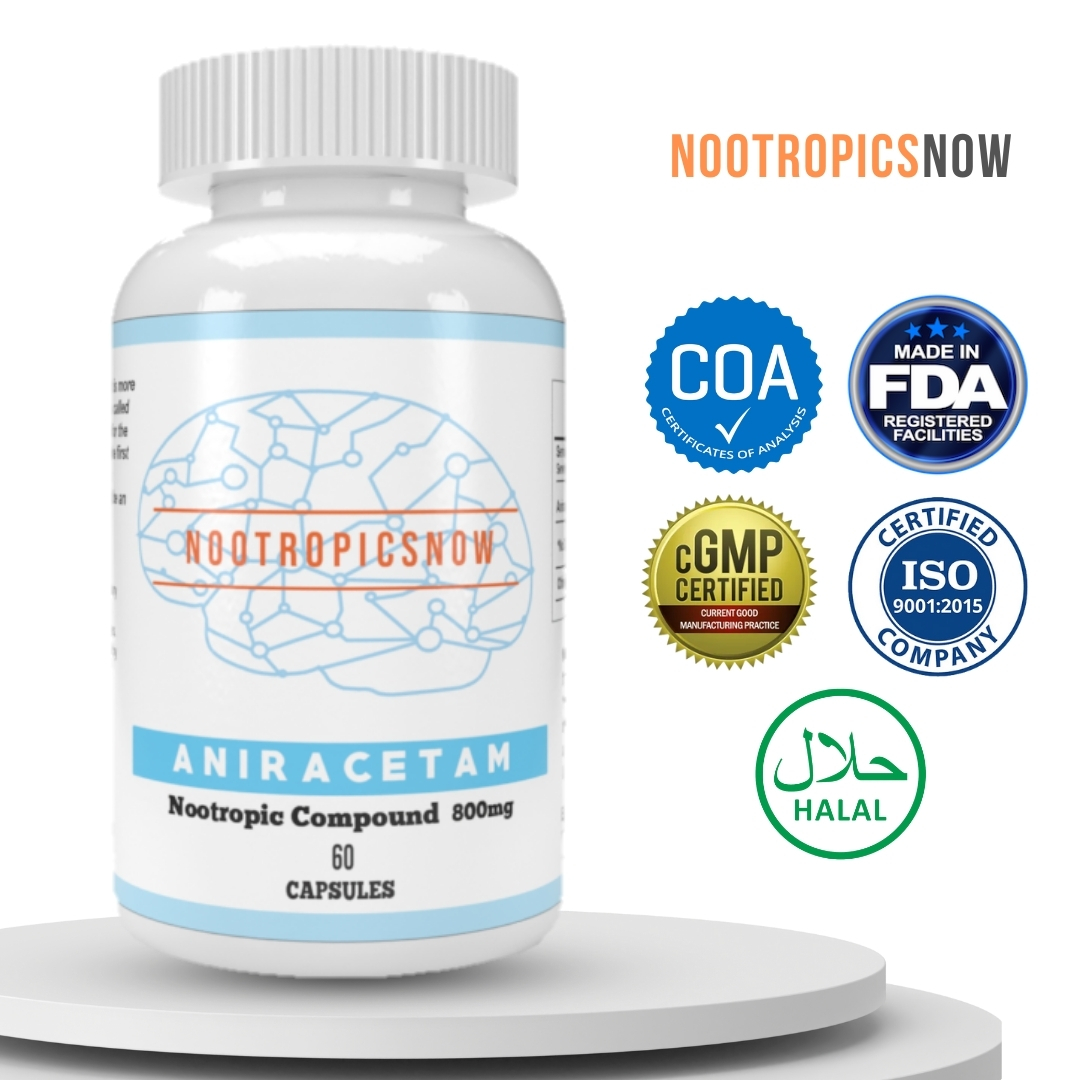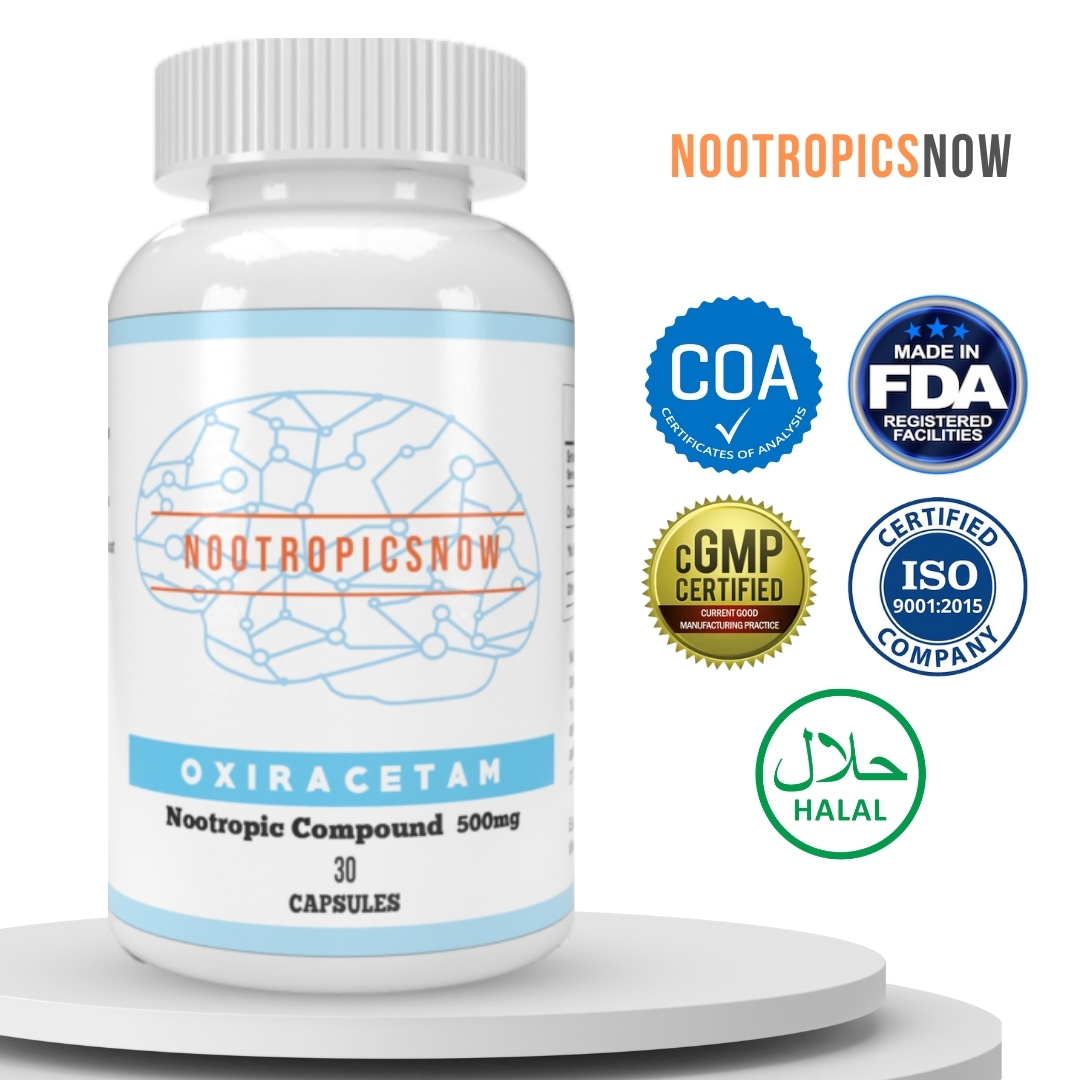Best Nootropics for Memory Retention

`markdown
Best Nootropics for Improving Memory Retention
Memory retention is a cornerstone of cognitive function. It allows us to learn, adapt, and thrive. Improving memory retention is not just about acing exams or recalling trivial facts. It’s also about enhancing our overall quality of life. Certain nootropics offer significant potential in this area. Therefore, let’s explore the best nootropics for improving memory retention. These memory enhancers are backed by scientific research.
Understanding Memory and Nootropics
Before delving into specific nootropics, it’s important to understand how memory works and what nootropics are. Memory isn’t a single entity. Rather, it encompasses various processes, including encoding, storage, and retrieval. Nootropics, on the other hand, are substances designed to enhance cognitive functions. These functions include memory, focus, and learning. Nootropics can be natural or synthetic. They work through various mechanisms. These mechanisms include increasing blood flow to the brain or modulating neurotransmitter activity.
The Stages of Memory Formation
Memory formation is a complex process involving several stages. These include:
Nootropics can influence these stages, improving memory formation and recall.
How Nootropics Enhance Memory
Nootropics work through several mechanisms to enhance memory. These mechanisms include:
Top Nootropics for Memory Retention
Several nootropics have demonstrated promise in improving memory retention. These include both natural and synthetic compounds. Each compound acts through distinct mechanisms. Consequently, they offer unique benefits for cognitive enhancement.
1. Citicoline (CDP-Choline)
Citicoline, also known as cytidine diphosphate-choline or CDP-Choline, is a naturally occurring compound that serves as a precursor to phosphatidylcholine, a major component of cell membranes. Moreover, it plays a crucial role in brain health and cognitive function.
How Citicoline Works
Citicoline enhances memory retention by increasing the synthesis of acetylcholine. Acetylcholine is a neurotransmitter crucial for memory formation and recall. In addition, Citicoline supports overall brain health. It does this by providing the building blocks necessary for cell membrane repair and maintenance.

View Product
Research and Evidence
Studies have demonstrated that citicoline improves memory in older adults with memory deficits, particularly in free recall tasks. Furthermore, its combination with uridine monophosphate (UMP) enhances short-term memory. This is achieved by supporting RNA repletion and hippocampal synaptic connections. A study published in the “Journal of Neurology, Neurosurgery & Psychiatry” found that citicoline supplementation improved cognitive function in individuals with age-related cognitive decline.
Dosage and Considerations
The typical dosage of citicoline ranges from 250 mg to 500 mg per day. It is generally well-tolerated, but some individuals may experience mild side effects such as headaches or gastrointestinal upset.
2. Phosphatidylserine (PS)
Phosphatidylserine (PS) is a phospholipid that is a critical component of cell membranes, particularly in the brain. It is involved in various cellular processes. These cellular processes include cell signaling and neurotransmitter release.
How Phosphatidylserine Works
PS supports short-term memory formation by maintaining brain cell membrane integrity. It also reduces the effects of stress on cellular structure. Furthermore, it enhances communication between neurons, facilitating memory consolidation.
Research and Evidence
PS supplementation has been shown to slow or even reverse age-related cognitive memory decline. Thus, it’s beneficial for both younger and older adults. A meta-analysis published in “Aging (Albany NY)” concluded that PS supplementation could improve cognitive function. It has demonstrated this improvement in elderly individuals with mild cognitive impairment.
Dosage and Considerations
The recommended dosage of PS is typically 100 mg to 300 mg per day. It is generally considered safe, but some individuals may experience mild gastrointestinal side effects.
3. Bacopa Monnieri
Bacopa Monnieri is an adaptogenic herb used in Ayurvedic medicine for centuries. It is renowned for its cognitive-enhancing properties.

View Product
How Bacopa Monnieri Works
Bacopa Monnieri enhances neuron communication in the brain. This communication is crucial for memory formation and recall. In addition, it possesses antioxidant properties, protecting brain cells from damage. It increases cerebral blood flow as well. Consequently, this supports optimal cognitive function.
Research and Evidence
Studies have indicated that Bacopa Monnieri improves attention and decreases reaction time. The evidence on its ability to improve memory recall is mixed. However, several studies have reported improvements in memory retention with regular use. A study in the “Journal of Alternative and Complementary Medicine” found that Bacopa Monnieri improved visual processing speed, learning rate, and memory consolidation in healthy adults.
Dosage and Considerations
The typical dosage of Bacopa Monnieri ranges from 300 mg to 450 mg per day. It may take several weeks or months to experience the full benefits. Some individuals may experience mild gastrointestinal side effects.
4. N-Acetyl L-Tyrosine (NALT)
N-Acetyl L-Tyrosine (NALT) is a more bioavailable form of L-tyrosine, an amino acid essential for the production of neurotransmitters like dopamine, norepinephrine, and epinephrine.
How N-Acetyl L-Tyrosine Works
NALT helps protect cognitive function by providing a buffer between neurotransmitters and stress hormones. This is particularly effective for boosting working memory under pressure. Additionally, it supports attention and focus, contributing to improved memory formation.

View Product
Research and Evidence
Research suggests that NALT can improve cognitive performance under stressful conditions. A study published in “Brain Research Bulletin” found that NALT improved working memory and cognitive flexibility during acute stress.
Dosage and Considerations
The recommended dosage of NALT is typically 500 mg to 2000 mg per day. It is generally well-tolerated, but some individuals may experience mild side effects such as nausea or headaches.
5. Ginkgo Biloba
Ginkgo Biloba is an ancient herb known for its ability to increase blood flow to the brain. It is derived from the Ginkgo tree.
How Ginkgo Biloba Works
Ginkgo Biloba enhances both memory and attention span by increasing cerebral blood flow. It also possesses antioxidant properties, protecting brain cells from oxidative stress. As a result, Ginkgo is particularly beneficial for individuals looking to improve their focus and memory, especially in demanding mental tasks.

View Product
Research and Evidence
Numerous studies have demonstrated the cognitive benefits of Ginkgo Biloba. A meta-analysis published in “Human Psychopharmacology” concluded that Ginkgo Biloba could improve cognitive function in individuals with age-related cognitive decline.
Dosage and Considerations
The typical dosage of Ginkgo Biloba ranges from 120 mg to 240 mg per day. It is generally considered safe, but some individuals may experience mild side effects such as headaches or gastrointestinal upset.
6. Lion’s Mane Mushroom
Lion’s Mane Mushroom (Hericium erinaceus) is a medicinal mushroom known for its neurotrophic properties. It has gained significant attention in recent years for its potential cognitive benefits.

View Product
How Lion’s Mane Works
Lion’s Mane Mushroom supports the growth and health of brain cells, crucial for maintaining and enhancing memory function. It stimulates the production of nerve growth factor (NGF), a protein that promotes the survival and differentiation of neurons. Due to its neuroprotective properties, it benefits those looking to support their brain health and cognitive function over time.
Research and Evidence
Studies have shown that Lion’s Mane Mushroom can improve cognitive function and memory in individuals with mild cognitive impairment. A study published in “Phytotherapy Research” found that Lion’s Mane Mushroom improved cognitive test scores in elderly adults with mild cognitive decline.
Dosage and Considerations
The recommended dosage of Lion’s Mane Mushroom varies depending on the form (e.g., extract, powder, capsules). Typical dosages range from 500 mg to 3000 mg per day. It is generally well-tolerated, but some individuals may experience mild gastrointestinal side effects.
7. Rhodiola Rosea
Rhodiola Rosea is a natural adaptogen that helps the body adapt to stress and improve mental clarity. It is extracted from a plant of the same name.
How Rhodiola Rosea Works
Rhodiola Rosea reduces stress and improves mental clarity. In fact, stress often hampers memory and cognitive functions. Rhodiola Rosea addresses this by promoting a calmer, more focused mind. In turn, this enhances the ability to encode, store, and retrieve information.

View Product
Research and Evidence
Studies have shown that Rhodiola Rosea can improve cognitive function and reduce mental fatigue. A study published in “Phytomedicine” found that Rhodiola Rosea improved mental performance during periods of stress.
Dosage and Considerations
The typical dosage of Rhodiola Rosea ranges from 200 mg to 600 mg per day. It is generally considered safe, but some individuals may experience mild side effects such as insomnia or irritability.
Combining Nootropics for Enhanced Memory
While individual nootropics can offer significant benefits for memory retention, combining them can potentially amplify their effects. This is known as “stacking” nootropics.
Popular Nootropic Stacks for Memory
Some popular nootropic stacks for memory include:
Considerations When Stacking Nootropics
When stacking nootropics, it is essential to start with low dosages and gradually increase them. This gradual increase allows you to assess your tolerance and minimize the risk of side effects. In addition, be sure to research potential interactions between the different nootropics. It is also helpful to consult with a healthcare professional before starting any new supplement regimen.
Lifestyle Factors for Memory Enhancement
While nootropics can be valuable tools for enhancing memory retention, they are not a substitute for a healthy lifestyle. Several lifestyle factors also play a crucial role in supporting cognitive function.
Diet and Nutrition
A balanced diet rich in antioxidants, omega-3 fatty acids, and B vitamins is essential for brain health. Foods like blueberries, fatty fish, and leafy greens can provide the nutrients necessary for optimal cognitive function.
Exercise
Regular physical activity increases blood flow to the brain, promoting neurogenesis (the formation of new neurons) and enhancing cognitive function. Aim for at least 30 minutes of moderate-intensity exercise most days of the week.
Sleep
Adequate sleep is crucial for memory consolidation. Aim for 7-9 hours of quality sleep per night. Establish a regular sleep schedule and create a relaxing bedtime routine to improve sleep quality.
Stress Management
Chronic stress can impair cognitive function and memory. Practice stress-management techniques such as meditation, yoga, or deep breathing exercises. This will help to reduce stress levels and protect brain health.
Conclusion
Improving memory retention involves a multifaceted approach. This approach includes enhancing neurotransmitter activity, supporting brain cell health, and reducing stress. The nootropics mentioned above—Citicoline, Phosphatidylserine, Bacopa Monnieri, N-Acetyl L-Tyrosine, Ginkgo Biloba, Lion’s Mane Mushroom, and Rhodiola Rosea—each contribute uniquely to the overall effectiveness of memory enhancement. Moreover, adopting a healthy lifestyle that includes a balanced diet, regular exercise, adequate sleep, and stress management can further optimize cognitive function. Always consult with a healthcare professional before starting any new supplement regimen. This ensures safety and optimal efficacy. Ultimately, enhancing memory retention is an ongoing process that requires a combination of strategic supplementation and healthy lifestyle choices.
`
Best Nootropics for Improving Memory Retention
Improving memory retention is a key goal for students, professionals, and anyone seeking to enhance their cognitive abilities. Nootropics, substances that enhance cognitive function, can play a significant role in achieving this goal. This section will explore some of the best nootropics for improving memory retention, backed by scientific evidence and user experiences. It will also discuss how these nootropics work, their potential benefits, and important considerations for safe and effective use.
Understanding Memory and Nootropics
Before diving into specific nootropics, it’s essential to understand how memory works and how nootropics can influence it. Memory involves several complex processes, including encoding, storage, and retrieval. Encoding is the initial process of converting information into a format that the brain can store. Storage involves maintaining this information over time, while retrieval is the process of accessing the stored information when needed. Nootropics can influence these processes by affecting neurotransmitter levels, improving blood flow to the brain, and protecting brain cells from damage.
Nootropics work through various mechanisms. Many enhance the production or activity of neurotransmitters such as acetylcholine, dopamine, and serotonin, which are essential for cognitive functions like memory, focus, and mood. Others act as antioxidants, protecting brain cells from oxidative stress and damage caused by free radicals. Some nootropics improve cerebral blood flow, delivering more oxygen and nutrients to the brain, thereby enhancing cognitive performance. Moreover, some can even stimulate neurogenesis, promoting the growth of new brain cells.
Top Nootropics for Enhanced Memory
Numerous nootropics are marketed for their cognitive-enhancing properties, but some stand out for their proven ability to improve memory retention. These include:
1. Citicoline (CDP-Choline)
Citicoline, also known as cytidine diphosphate-choline (CDP-Choline), is a naturally occurring compound in the body that serves as a precursor to phosphatidylcholine, a major component of cell membranes. Consequently, it supports brain cell health and function. This nootropic has been extensively studied for its cognitive-enhancing effects, particularly its ability to improve memory and cognitive performance.
How it Works: Citicoline enhances memory retention by increasing the synthesis of acetylcholine, a crucial neurotransmitter involved in learning and memory. Acetylcholine plays a vital role in synaptic plasticity, the ability of synapses to strengthen or weaken over time in response to increases or decreases in their activity. By boosting acetylcholine levels, citicoline improves synaptic plasticity and enhances memory consolidation.
Benefits: Clinical trials have demonstrated that citicoline supplementation can improve memory and cognitive function in older adults with age-related cognitive decline. Moreover, it enhances attention and focus, benefiting individuals of all ages. Additionally, studies have explored its potential benefits in treating cognitive disorders, such as Alzheimer’s disease and stroke.
Dosage: The typical dosage of citicoline ranges from 250mg to 2000mg per day, divided into one or two doses. Start with a lower dose and gradually increase it to assess tolerance and optimize effects.
`markdown

View Product
`
2. Phosphatidylserine (PS)
Phosphatidylserine (PS) is a phospholipid found in high concentrations in brain cell membranes. It plays a crucial role in maintaining cell membrane integrity and function. PS is another well-researched nootropic that supports short-term memory formation and cognitive function.
How it Works: Phosphatidylserine enhances memory retention by supporting the structure and function of brain cell membranes. This improves cell-to-cell communication and protects against age-related cognitive decline. PS also modulates the release of neurotransmitters like acetylcholine and dopamine, further enhancing cognitive function.
Benefits: Studies have shown that PS supplementation can improve memory, attention, and cognitive function in older adults with age-related cognitive decline. It can also improve cognitive performance in younger adults, particularly under stressful conditions. Therefore, it is a solid choice for students who need to improve their focus.
Dosage: The typical dosage of phosphatidylserine ranges from 100mg to 300mg per day, divided into two or three doses. As with citicoline, start with a lower dose and gradually increase it to assess tolerance.
3. Bacopa Monnieri
Bacopa monnieri is an herb used in traditional Ayurvedic medicine for centuries. It is known for its cognitive-enhancing properties, particularly its ability to improve memory and learning. As an adaptogen, it also assists the body in dealing with stress.
How it Works: Bacopa monnieri enhances memory retention by improving neuron communication in the brain. It contains active compounds called bacosides, which enhance synaptic transmission and protect brain cells from oxidative stress. It has also been shown to have anti-inflammatory effects, which can further protect brain cells.
Benefits: Clinical trials have shown that Bacopa monnieri supplementation can improve memory, attention, and cognitive function in healthy adults and older adults with age-related cognitive decline. It enhances learning ability, making it particularly beneficial for students and those engaged in mentally demanding tasks. In a study, after twelve weeks of Bacopa administration, participants completed the Working Memory subtest from the neuropsychological test battery CANTAB (Cambridge Neuropsychological Test Automated Battery). [^1^]
Dosage: The typical dosage of Bacopa monnieri ranges from 300mg to 600mg per day, taken in one or two doses. It is important to note that the effects of Bacopa monnieri may take several weeks to become noticeable, so consistent supplementation is necessary.
`markdown

View Product
`
4. N-Acetyl L-Tyrosine (NALT)
N-Acetyl L-Tyrosine (NALT) is a more bioavailable form of L-tyrosine, an amino acid that is a precursor to several important neurotransmitters, including dopamine, norepinephrine, and epinephrine. These neurotransmitters play a vital role in regulating mood, motivation, and cognitive function.
How it Works: NALT enhances memory retention by supporting the production of neurotransmitters essential for attention and focus. By providing the building blocks for dopamine, norepinephrine, and epinephrine, NALT helps optimize cognitive performance, particularly under stress.
Benefits: Studies have shown that NALT supplementation can improve cognitive function and memory performance under stress. It can also enhance mood and motivation, making it beneficial for individuals facing demanding tasks or stressful situations.
Dosage: The typical dosage of NALT ranges from 500mg to 2000mg per day, taken in one or two doses. It is best to take NALT on an empty stomach for optimal absorption.
5. Ginkgo Biloba
Ginkgo biloba is a traditional herb used for centuries to improve memory and cognitive function. It is known for its ability to increase blood flow to the brain, which enhances oxygen and nutrient delivery.
How it Works: Ginkgo biloba enhances memory retention by improving cerebral blood flow. It also has antioxidant and anti-inflammatory properties, which protect brain cells from damage and improve overall cognitive function. Ginkgo biloba may also affect neurotransmitter systems, such as increasing acetylcholine and dopamine levels.
Benefits: Clinical trials have demonstrated that Ginkgo biloba supplementation can improve memory, attention, and cognitive function in older adults with age-related cognitive decline. It may also improve cognitive performance in healthy adults, particularly in tasks requiring attention and focus.
`markdown

View Product
`
Dosage: The typical dosage of Ginkgo biloba ranges from 120mg to 240mg per day, divided into two or three doses. It is important to choose a standardized extract that contains 24% flavone glycosides and 6% terpene lactones for optimal efficacy.
6. Lion’s Mane Mushroom
Lion’s Mane Hericium erinaceus is a medicinal mushroom known for its cognitive-enhancing and neuroprotective properties. It contains unique compounds called hericenones and erinacines, which stimulate the growth of nerve cells in the brain.
How it Works: Lion’s Mane mushroom enhances memory retention by promoting nerve growth factor (NGF) synthesis, which is essential for the growth, maintenance, and survival of brain cells. By increasing NGF levels, Lion’s Mane supports synaptic plasticity and enhances memory consolidation.
Benefits: Studies have shown that Lion’s Mane supplementation can improve cognitive function and memory in older adults with mild cognitive impairment. It may also have benefits for healthy adults, improving focus, attention, and overall cognitive performance.
Dosage: The typical dosage of Lion’s Mane mushroom ranges from 500mg to 3000mg per day, taken in one or two doses. It is important to choose a high-quality extract from a reputable source for optimal efficacy.
`markdown

View Product
`
7. Rhodiola Rosea
Rhodiola rosea is an adaptogenic herb that helps the body adapt to stress. It has been used for centuries to improve mental performance, reduce fatigue, and enhance overall well-being.
How it Works: Rhodiola rosea enhances memory retention by reducing stress and improving mental clarity. It modulates the release of stress hormones, such as cortisol, and enhances the activity of neurotransmitters like serotonin and dopamine, promoting a calmer, more focused mind.
Benefits: Clinical trials have shown that Rhodiola rosea supplementation can improve cognitive function, memory, and attention in individuals under stress. It can also reduce fatigue and improve mood, making it a beneficial nootropic for students and professionals facing demanding tasks.
Dosage: The typical dosage of Rhodiola rosea ranges from 100mg to 600mg per day, taken in one or two doses. It is important to choose a standardized extract that contains 3% rosavins and 1% salidroside for optimal efficacy.
`markdown

View Product
`
8. Piracetam
Piracetam, one of the oldest and most well-known nootropics, belongs to the racetam family. It is often considered a foundational nootropic due to its extensive research history and relatively mild side effect profile. It’s the “original” nootropic, with research dating back to the 1960s.
How it Works: Piracetam’s exact mechanism of action is not fully understood, but it’s believed to enhance memory retention by modulating neurotransmitter systems, such as acetylcholine, and improving cell membrane fluidity. This improved fluidity helps in the transmission of nerve signals and cognitive function. Furthermore, Piracetam may increase cerebral blood flow and oxygen consumption in the brain, which facilitates neural function and overall brain health.
Benefits: Users commonly report improved memory, enhanced learning capacity, and heightened focus. Some studies show potential benefits in treating cognitive decline associated with aging.
It can also be used as a starting point to explore other nootropics or as a foundational element in cognitive enhancement stacks.
Dosage: The typical dosage of Piracetam ranges from 1.6 grams to 4.8 grams per day, divided into two or three doses. It is often recommended to start with a lower dose and gradually increase it to assess tolerance.
9. Aniracetam
Aniracetam is another racetam nootropic, similar to Piracetam but known for its enhanced potency and purported anxiolytic (anxiety-reducing) effects. It’s often favored for its ability to promote creativity and enhance sensory perception.
`markdown

View Product
`
How it Works: Aniracetam is thought to enhance memory by increasing the activity of acetylcholine and glutamate, two crucial neurotransmitters in learning and memory processes. It also has the potential to improve communication between the left and right hemispheres of the brain, which is essential for creative thinking and problem-solving.
Benefits: Users report improvements in memory consolidation, enhanced focus, and an overall boost in cognitive performance. Some also experience a reduction in anxiety and improved mood. It’s often chosen for tasks that require creative thinking and enhanced sensory experiences.
Dosage: The standard dosage for Aniracetam typically falls between 750 mg to 1500 mg per day, split into multiple doses. It’s fat-soluble, so taking it with a meal that contains fats is often recommended to enhance absorption.
10. Oxiracetam
Oxiracetam is known for its stimulating and cognitive-enhancing properties, making it a popular choice for those seeking to improve memory and focus. It is considered more potent than Piracetam but with a similar mechanism of action.
`markdown

View Product
`
How it Works: It’s believed to enhance memory and focus by modulating neurotransmitter systems, particularly acetylcholine and glutamate. This modulation results in improved signal transmission and enhanced cognitive abilities. Additionally, it improves cerebral blood flow, which is crucial for delivering oxygen and nutrients to the brain.
Benefits: Users often experience significant improvements in memory, focus, and learning abilities. It’s particularly useful for tasks that require sustained attention and mental clarity. It also helps improve overall cognitive energy.
Dosage: The generally recommended dose for Oxiracetam is between 600 mg to 2400 mg per day, usually taken in two divided doses. It is water-soluble, making it relatively easy to absorb, and can be taken with or without food.
Stacking Nootropics for Synergistic Effects
Some individuals choose to combine different nootropics to achieve synergistic effects. Stacking involves taking multiple nootropics together to enhance their individual benefits and achieve a more comprehensive cognitive improvement. However, it is essential to research carefully and consult with a healthcare professional before stacking nootropics, as potential interactions and side effects can occur.
Some popular nootropic stacks for memory enhancement include:
Important Considerations for Safe and Effective Use
While nootropics can offer potential benefits for improving memory retention, it is essential to use them safely and effectively. Before starting any new nootropic regimen, consider the following:

